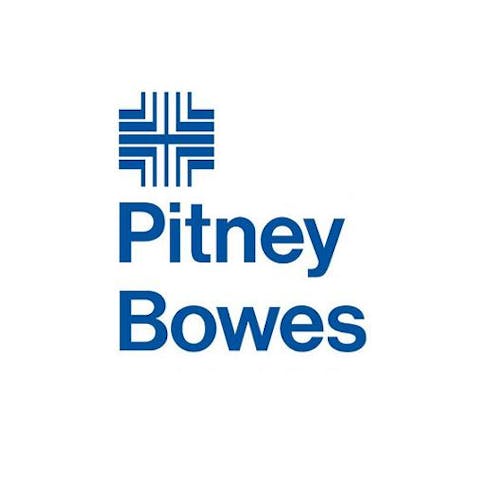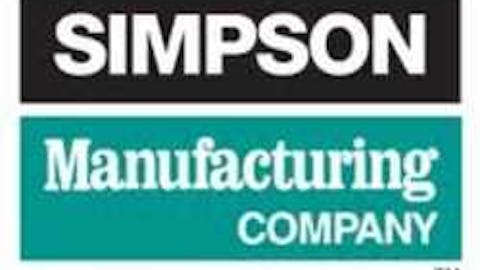Generally, insiders buy stock in their own company when they feel confident about the company’s market prospects and outlook. Sometimes insiders buy stock in their own companies so as to show commitment to working to enhance shareholder value over time. Historically, stocks bought by insiders have tended to outperform broad benchmarks over time; discover the secrets of insider trading here.
The following represents a selection of five dividend-paying stocks with yields above 2.0% that have recently recorded meaningful insider buying activity. The list includes Pitney Bowes Inc. (NYSE:PBI), which recently ended its multi-decade streak of interrupted dividend increases by cutting its dividend in half, and Myers Industries, Inc. (NYSE:MYE), a small-cap polymers manufacturer that has paid dividends since 1971.
Pitney Bowes Inc. (NYSE:PBI)
Pitney Bowes Inc. (NYSE:PBI), the world’s largest seller of postage meters, was until recently an S&P Dividend Aristocrat with 30 consecutive years of annual dividend increases. In late April, the company slashed its dividend in half in order to secure “financial flexibility to invest in the business and enhance capital structure,” according to its CEO. The company has been struggling with falling revenues as it continues to rely on an outdated business model. However, it is slowly increasing the share of enterprise-related revenues, which account for 35% of the total and grow at a low forecast CAGR of between 1% and 3%.
The problem is, however, that new revenue streams carry lower margins. The company’s first-quarter revenue dipped from the prior-year quarter and adjusted EPS from continuing operations plunged. Pitney Bowes Inc. (NYSE:PBI) sees 2013 revenue growth in the range of flat to 3% and adjusted EPS in the range of between $1.85 and $2.00, below last year’s $2.18, which included first-quarter $0.11 per share net tax benefit. Pitney Bowes Inc. (NYSE:PBI) pays a dividend yield of 4.9% on a payout ratio of 40% of the current-year EPS estimate.
On May 7, the company’s President and CEO, Marc Lautenbach, purchased 66,000 shares of PBI at an average price of $15.36 per share. The stock is currently trading at $15.44 per share.
Myers Industries, Inc. (NYSE:MYE)
Myers Industries, Inc. (NYSE:MYE) is a pick of Mario Gabelli, who controls the largest, 15.72% stake in the company. For five years in a row, Gabelli’s fund GAMCO Asset Management waged a proxy contest to win a seat on Myers Industries, Inc. (NYSE:MYE)’s Board of Directors, claiming it had “little confidence” in the Board’s commitment to enhance shareholder value. The fund recently won a proxy fight and had its Board nominee elected in late April. Reportedly, in early April, Myers Industries, Inc. (NYSE:MYE)also agreed to increase from nine to 10 the number of Board seats in order to accommodate the addition of Gabelli’s nominee.
As regards it performance, in the first quarter, the company’s net sales were up 8.1% from the year earlier; however, as anticipated, its adjusted EPS plunged, missing analyst estimates. The company’s top management believes “full-year 2013 results should improve over 2012,” driven by cost cutting, new product innovation, and higher sales. Myers Industries, Inc. (NYSE:MYE) Industries’ operational performance is guided by a sales growth target rate of 1.5x GDP and a gross margin target of 27%, both of which the company exceeded last year. Its ROIC target is above 10%. Myers Industries, Inc. (NYSE:MYE) pays a dividend yield of 2.4% on a payout ratio of 35% of the current-year EPS estimate.
On several occasions between May 2 and 6, Daniel Lee, the company’s new Board member, purchased a total of 16,203 shares at an average price of $14.53 a share. The stock is currently trading at $15.61 a share.
The Boeing Company (NYSE:BA)
The Boeing Company (NYSE:BA), an aerospace giant, also saw some interest from insiders recently. The company’s troubles involving its 787 Dreamliner aircraft due to battery issues ended successfully, with the new lithium-ion battery approved by the FAA and some airplanes already back in service. The company is ramping up production of this aircraft to the rate of seven airplanes per month, with plans to reach a target of 10 planes per month by yearend. The Boeing Company (NYSE:BA) sees resiliency in the passenger traffic trends and opportunities for long-term growth in commercial aviation.
However, it is reporting “pressures” in the cargo traffic market and is also facing headwinds in the traditional defense markets of the developed nations, including the United States. Still, the company recognizes opportunities for defense sector growth in international markets. With a record backlog of $392 billion, The Boeing Company (NYSE:BA) projects revenue growth in the range of flat to 3.7% and core earnings up 5.4% in 2013, based on the core EPS guidance midpoint. Long-term growth is almost assured as The Boeing Company (NYSE:BA)sees future aircraft demand at almost $4.5 trillion by 2031. The Boeing Company (NYSE:BA)’s stock is yielding 2.1% on a payout ratio of 30% of the current-year EPS estimate.
On May 1, Lawrence Kellner (Director) acquired 1,500 shares at an average price of $91.59 per share. However, it should also be noted that BA saw four insider sales so far this month, involving an executive VP and three senior VPs, who sold a total of 33,696 shares. BA shares are currently trading at $94.24 per share.
Huntington Bancshares Incorporated (NASDAQ:HBAN)
Huntington Bancshares Incorporated (NASDAQ:HBAN) is a regional bank holding company. Last quarter, the company topped analyst earnings expectations with a flat earnings growth versus the prior-year quarter. Positive growth trends are expected to continue this year. C&I loans, which account for the largest share in Huntington Bancshares Incorporated (NASDAQ:HBAN)’s loan portfolio, are expected to grow through the remainder of this year, more heavily weighted towards the second half of the year. Net interest income will increase modestly, but will be pressured due to a continued net interest margin squeeze. Loan quality is also expected to improve throughout this year.
Despite these positive trends, the bank still reported a lower return on average assets, which was 1.10% in the first quarter, down from 1.13% in the prior-year quarter. Its return on average common equity was also down to 10.7% from 11.4% in the first quarter of last year. Huntington Bancshares Incorporated (NASDAQ:HBAN) is yielding 2.7% after a 25% dividend hike back in April. It is priced at 10% premium to book value and, therefore, a 22% premium to its five-year historical price-to-book. The bank’s current price-to-book is still less than half the ratio in the early 2000s’.
On May 1, Peter Knight, one of the company’s directors, acquired 100,000 shares at an average price of $7.12 per share. The company’s President, CEO, and Chairman, Stephen Steinour, was a buyer last month. The company’s shares are currently trading at $7.49 a share.
Dr Pepper Snapple Group Inc. (NYSE:DPS)
Dr Pepper Snapple Group Inc. (NYSE:DPS) is aiming to be “the best beverages company in the United States,” according to its CEO. The company is facing headwinds due to a public campaign against the sugary drinks, including the NYC Mayor’s ban on large sugary drinks in NYC restaurants in order to fight obesity and illnesses resulting from it. (The ban was tossed out by a NY judge back in March.) Despite the generally negative beverage consumption trends, the company posted a 1% increase in first-quarter sales, “reflecting positive price/mix and favorable discounts (that were) partially offset by a 2% decline in sales volumes.” The company’s quarterly core EPS were up 15.2% year-over-year. This year, Dr Pepper Snapple Group Inc. (NYSE:DPS) projects a 3% increase in net sales and core EPS in the $3.04-to-$3.12 range, up from $2.92 in 2012. The firm seems likely to embark on an international expansion, as it has signed a deal with Mondelez International (MDLZ) to reacquire the distribution rights for Snapple and other non-carbonated beverage brands in several Asia-Pacific countries, including Australia, Malaysia, China, and Japan.
On April 25, David E. Alexander, one of the company’s directors, purchased 1,000 shares of DPS at an average price of $48.17 per share. The stock is currently trading at $49.00 a share. (It should also be noted that on May 1, James J. Johnston Jr., the company’s Executive VP, exercised options and sold a total of 75,583 shares at an average price of $48.25 per share.)
Final thoughts
There are many different types of insider transactions, and without understanding the time frame one should be looking for (i.e., within the past 90 or 180 days), it’s very difficult to sift through this information. As Insider Monkey’s name suggests, though, we’ve compiled a comprehensive database that allows individual investors to understand insider trading with relative ease, and best of all, it’s free to use. Check it out here.



